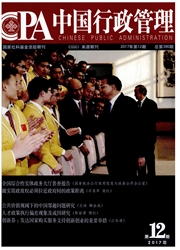

 中文摘要:
中文摘要:
评价主体决定了财政支出绩效评价的公信力,影响评价的技术体系及结果应用。基于角色认知、权力结构的相对地位、利益相关性及组织能力四个角度,以广东省若干项省级财政专项资金为例的财政支出绩效评价研究发现,不同评价主体启动绩效评价的动力来源不一样,所扮演的角色有别,其中,人大主导的绩效评价能有效克服政府内部评价的角色冲突,体现政府绩效评价的民主属性,更加注重流程优化与结果反馈,强化资金分配决策的合理性,评价周期更合理,结果更权威公正,应用更加充分。然而,人大要主导财政支出的绩效评价,仍然面临着法制、信息以及组织能力等现实因素的制约,未来应探讨建立由人大主导(评价主体)、财政部门与主管部门协同、独立第三方实施的财政支出绩效评价模式。
 英文摘要:
英文摘要:
In this paper, we use a case study from Provincial Special Funds of Guangdong Province, and analyze the different impacts of three kinds of evaluation bodies on carrying out evaluation, evaluation process and the application of performance results from the perspectives of role cognition , relationship between stakeholders, the relative position in the power structure, and organizational capability. The evaluations the future, we should set up a new evaluation model led by the People' s Congress, coordinated by the Financial Department and the Functional Departments, and implemented by third-sector bodies.
 同期刊论文项目
同期刊论文项目
 同项目期刊论文
同项目期刊论文
 期刊信息
期刊信息
